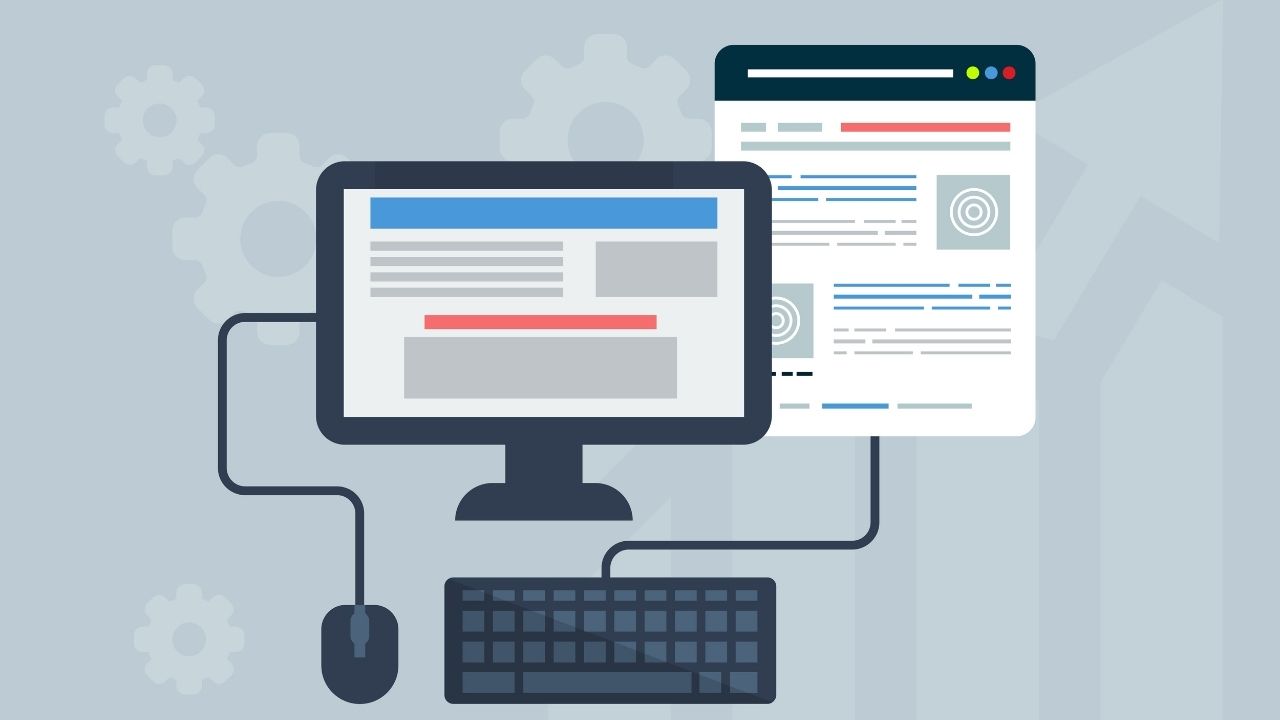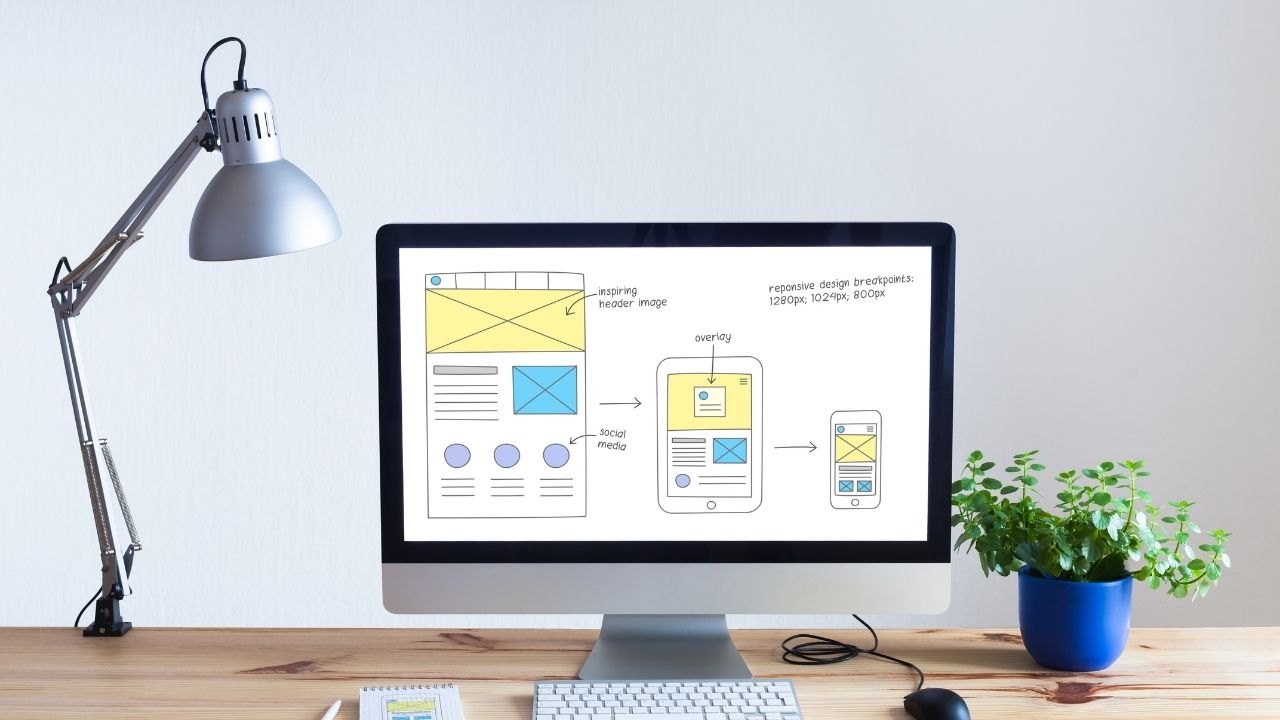Are you in the market for a new Content Management System (CMS)? Look no further! In this article, we'll guide you through the process of choosing the right CMS for your needs, with a focus on popular options like WordPress, Joomla, and Drupal. We'll also explore some lesser-known alternatives that might surprise you.
By the end, you'll have all the information you need to make an informed decision and take your website to the next level. So, let's get started!
Key Takeaways
- WordPress is a user-friendly CMS with a simple interface, extensive plugin library, and a large community for support. However, it may not be suitable for complex, enterprise-level websites.
- Joomla offers customization options, regular updates, and a wide array of templates, themes, extensions, and plugins. It is a versatile CMS suitable for various needs, but it requires some technical knowledge.
- Drupal provides extensive customization options, scalability, speed, and efficiency. It has an active community support system and is suitable for users looking for customization, scalability, and performance.
- For users looking for unique features and customization options, lesser-known CMS options like Strapi, Directus, and ButterCMS offer intuitive interfaces, powerful APIs, custom databases, real-time collaboration, and integrations for seamless content integration.
Advantages and Disadvantages of WordPress
One advantage of WordPress is its user-friendly interface, making it easy for beginners to create and manage their websites. When compared to other content management systems (CMSs) like Joomla and Drupal, WordPress stands out in terms of simplicity and ease of use. With its intuitive dashboard and straightforward navigation, WordPress allows you to easily customize your website, add new pages, and publish content without the need for technical expertise.
However, it's important to consider both the pros and cons of WordPress before making a decision. One of the main advantages of WordPress is its extensive plugin library, which offers a wide range of functionalities and features that can enhance your website's performance. Additionally, WordPress has a large and active community, which means you can easily find support and resources to help you troubleshoot any issues you may encounter.
On the other hand, WordPress may not be the best choice for complex, enterprise-level websites that require advanced customization and scalability. While it offers a solid foundation for most websites, it may not have the same level of flexibility and control as other CMSs like Joomla or Drupal. Therefore, it's important to evaluate your specific needs and consider the trade-offs between ease of use and advanced capabilities when choosing a CMS for your website.

Key Features of Joomla
When considering a CMS, you'll find that Joomla offers a range of key features. Here are three reasons why Joomla might be the right choice for you:
- Customization options: Joomla provides a wide array of customization options that allow you to tailor your website to your specific needs. From choosing different templates and themes to adding extensions and plugins, you have the freedom to create a unique and personalized website that stands out from the crowd.
- Community support: One of the biggest advantages of Joomla is its strong and supportive community. With a large user base, you can easily find help, support, and resources whenever you need them. Whether it's troubleshooting an issue, learning new techniques, or getting advice, the Joomla community is always ready to lend a helping hand.
- Constant updates and improvements: Joomla is known for its regular updates and improvements. The development team is constantly working to enhance the CMS by fixing bugs, introducing new features, and improving security. By using Joomla, you can be confident that your website will stay up-to-date and secure.
Exploring the Flexibility of Drupal
Exploring the flexibility of Drupal, you'll discover a CMS that offers extensive customization options and a robust community support system. With Drupal, you can tailor your website to meet your specific needs and create a unique online presence. The platform's flexibility allows you to customize everything from the layout and design to the functionality and features of your website.
One of the key advantages of Drupal is its scalability. Whether you have a small business website or a large enterprise platform, Drupal can handle it all. The CMS is designed to handle high traffic and heavy content loads, ensuring optimal performance even as your website grows.
In terms of performance, Drupal is known for its speed and efficiency. The platform utilizes caching techniques and other performance optimization tools to deliver fast-loading web pages. This not only enhances the user experience but also contributes to better search engine rankings.

Moreover, Drupal's active community support system is a valuable resource for users. The community is made up of developers, designers, and enthusiasts who are always ready to help and share their expertise. You can find answers to your questions, access documentation, and even contribute to the development of Drupal.
To better understand the customization options, scalability, and performance of Drupal, take a look at the table below:
| Customization Options |
Scalability |
Performance |
| Extensive |
High |
Efficient |
| Flexible |
Versatile |
Fast-loading |
| Tailored |
Expandable |
Optimized |
Lesser-Known CMS Options to Consider
If you're looking for alternative options to consider, there are several lesser-known CMS platforms available that offer unique features and functionalities. These headless CMS options provide flexibility and customization that may suit your specific needs.
Here are three options to explore:
- Strapi: This open-source headless CMS allows you to create, manage, and distribute content easily. With its intuitive interface and powerful API, you can build dynamic websites and applications with ease. Strapi also offers self-hosted and cloud-based options, giving you the freedom to choose the deployment method that works best for you.
- Directus: With Directus, you can create custom databases and APIs, making it a versatile choice for developers. It offers a user-friendly interface and supports real-time collaboration, making content management a breeze. Whether you prefer self-hosted or cloud-based CMS, Directus has got you covered.
- ButterCMS: This cloud-based headless CMS focuses on simplicity and ease of use. It offers a straightforward setup and a user-friendly content editor, making it ideal for non-technical users. ButterCMS also provides a variety of integrations and a flexible API, allowing you to seamlessly integrate your content into any platform.

Consider these lesser-known CMS options to find the perfect fit for your website or application. Whether you prefer self-hosted or cloud-based CMS, there is a platform out there that can meet your unique requirements.
Factors to Consider When Choosing a CMS
Consider your specific needs and requirements when selecting a CMS platform. It's important to find a CMS that offers the right balance of customizability and user-friendliness for your website. To help you make an informed decision, let's compare some popular CMS options in terms of these factors:
| CMS Platform |
Customizability |
User Friendliness |
| WordPress |
High |
Very user-friendly and intuitive interface. |
| Joomla |
Moderate |
Requires some technical knowledge, but has a user-friendly admin panel. |
| Drupal |
Very High |
Requires advanced technical knowledge, but offers extensive customization options. |
| Wix |
Moderate |
Easy to use with drag-and-drop features, but limited customization options. |
| Squarespace |
Moderate |
Easy to use with pre-designed templates, but limited customization options. |
From the table, you can see that WordPress and Joomla offer a good balance of customizability and user-friendliness. If you're looking for a CMS that is highly customizable and don't mind investing time in learning technical aspects, Drupal could be a good choice. On the other hand, if you prefer a more user-friendly and beginner-friendly CMS, Wix and Squarespace might be more suitable options.
Remember to consider your specific needs and requirements when making your final decision. A CMS that aligns with your goals and skill level will make managing your website a breeze.
Frequently Asked Questions
Are There Any Other CMS Options Available Besides WordPress, Joomla, and Drupal That Are Worth Considering?
There are other CMS options to consider besides WordPress, Joomla, and Drupal. Magento and Shopify are worth considering. When comparing the SEO capabilities of WordPress, Joomla, and Drupal, it's important to evaluate each platform's strengths and weaknesses.
Can I Easily Migrate My Website From One CMS to Another if I Decide to Switch in the Future?
Yes, you can easily migrate your website from one CMS to another if you decide to switch in the future. However, there are pros and cons to consider and factors that may impact the process.
How Do the Security Features of WordPress, Joomla, and Drupal Compare to Each Other?
When it comes to comparing the security features of WordPress, Joomla, and Drupal, it's important to understand the vulnerabilities and the importance of regular updates and security plugins for optimal performance.
Is It Possible to Integrate E-Commerce Functionality Into All of These CMS Options?
Yes, it is possible to integrate e-commerce functionality into all of these CMS options. You can easily add payment gateways and manage inventory and orders using WordPress, Joomla, Drupal, and more.
Which CMS Is Best Suited for a Large-Scale Enterprise Website With a High Volume of Traffic?
When choosing a CMS for a large-scale enterprise website with high traffic, consider factors like performance and scalability. Each option, WordPress, Joomla, and Drupal, has its own strengths and weaknesses in these areas.
Conclusion
Overall, when choosing a CMS, it's important to consider your specific needs and goals. If you're looking for a user-friendly platform with a large community and extensive plugin options, WordPress may be the best choice for you.
On the other hand, if you require more advanced functionality and customization, Drupal or Joomla might be more suitable. Additionally, don't overlook the lesser-known CMS options, as they may offer unique features that align with your requirements. Ultimately, take the time to evaluate the factors that are most important to you before making a decision.

 Moreover, Drupal's active community support system is a valuable resource for users. The community is made up of developers, designers, and enthusiasts who are always ready to help and share their expertise. You can find answers to your questions, access documentation, and even contribute to the development of Drupal.
To better understand the customization options, scalability, and performance of Drupal, take a look at the table below:
Moreover, Drupal's active community support system is a valuable resource for users. The community is made up of developers, designers, and enthusiasts who are always ready to help and share their expertise. You can find answers to your questions, access documentation, and even contribute to the development of Drupal.
To better understand the customization options, scalability, and performance of Drupal, take a look at the table below:

 Moreover, Drupal's active community support system is a valuable resource for users. The community is made up of developers, designers, and enthusiasts who are always ready to help and share their expertise. You can find answers to your questions, access documentation, and even contribute to the development of Drupal.
To better understand the customization options, scalability, and performance of Drupal, take a look at the table below:
Moreover, Drupal's active community support system is a valuable resource for users. The community is made up of developers, designers, and enthusiasts who are always ready to help and share their expertise. You can find answers to your questions, access documentation, and even contribute to the development of Drupal.
To better understand the customization options, scalability, and performance of Drupal, take a look at the table below:


